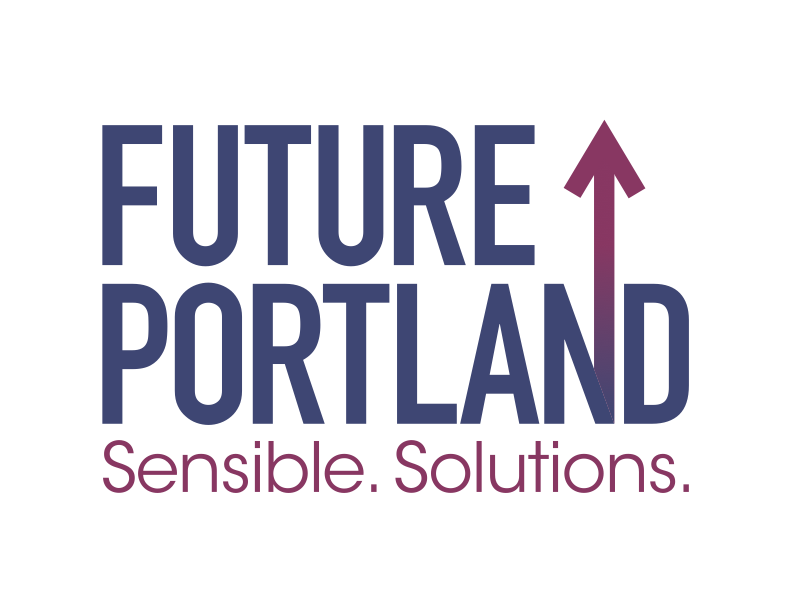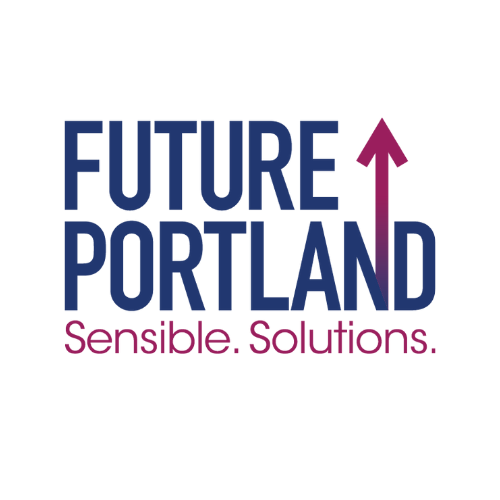Editorial endorsement November 2022: Vote ‘no’ on mega-measure to overhaul Portland city government
Portlanders don’t need much prodding to agree that our city government is broken. For the first time in decades, residents appear eager to change our form of government, in which City Council members both craft legislation and individually run city bureaus. Portland stands alone among large U.S. cities that still use this antiquated form of government.
The proposal on the November ballot to amend the city charter doesn’t stop with fixing that central problem behind the city’s dysfunction, however. The mega-measure, put together by a commission of volunteers, also overhauls our City Council structure to create a three-member-per-district system, with councilors elected through “ranked-choice voting” – a combined system untested and unused by any other city in the nation. Why choose for Portland to once again stand alone? Because, as charter commission member Becca Uherbelau put it, “we did not want a cookie cutter, off-the-shelf model for Portland. We wanted one that met our unique needs.”
Portland doesn’t need a unique system. We need a system that we know will work. Unfortunately, the proposal engineered by the charter commission introduces deeply flawed provisions that threaten to make city government even more dysfunctional and less accountable. The model is also built on highly optimistic assumptions that don’t match reality. It ignores the huge success of public campaign financing in fostering the diverse representation this new system purports to create. And parts of the proposal itself are so confusing that supporters themselves have repeatedly misstated what is required, claiming – incorrectly – that any candidate who wins a seat on City Council must receive a minimum of 25%-plus one of votes in their district. That’s not the case, as they later conceded in an email.
It makes no sense for Portland to adopt this form of government, especially as City Commissioner Mingus Mapps is developing a simpler, straightforward and well-tested alternative to put before the city next year. Portland voters should reject the idea of adopting a test case model for government and vote “no” on Measure 26-228.
Here’s the proposal on the ballot, starting with the uncontroversial part. The measure calls for doing away with our form of government in which the mayor and four city commissioners collectively act as the city’s legislative body but individually oversee various city bureaus. Instead, the City Council would focus on its legislative and constituent responsibilities while overseeing, with the mayor, a professional city administrator to run most city operations.
While there are some oddities about this arrangement, none are a dealbreaker and it addresses the dysfunctional set-up that has hampered city progress in the past.
The measure also calls for splitting Portland up into four geographic districts for electing city councilors, a switch from our current system where officials are elected citywide. And here’s where the proposal adds new kinds of dysfunction. Voters in each district would then vote for three city councilors to represent their area of the city. Their choices would be determined under a “ranked-choice voting” system in which voters would rank as many – or as few – candidates as they like on their ballot from first to last. Then, in tallying votes, any candidate who secures 25% plus one vote among first-choice votes would win one of the top three seats.
If fewer than three candidates reach that threshold, then the candidate with the least first-choice votes is eliminated and those ballots’ second-choice candidates are then automatically tallied. (A portion of ballots for candidates who exceed the 25%-plus-one threshold also gets distributed to their next choice). The process continues until either there are three candidates who meet the threshold, or the remaining candidates are the only ones left to fill the remaining open seats – regardless of whether they met the 25%-plus-one threshold, as the proposed charter amendment language lays out.
This is a problem for a number of reasons. In recent years, Portland City Council races have drawn roughly 8-10 candidates, but few of those have had the qualifications or shown the broad understanding of city government to wage a strong campaign. For example, eight candidates challenged Commissioner Dan Ryan earlier this year. None, in our view, were viable alternatives and voters similarly reflected that by awarding Ryan 55% of the vote. Ryan received twice as many votes as the second-place finisher and seven times as many as the third-place finisher.
Certainly, the option of choosing three candidates rather than just one can change how voters decide. But voters may simply choose not to rank additional candidates because they dislike the choices or simply do not know much about them. That scenario can lead to unqualified or fringe candidates gaining a seat on the City Council.
Paul Gronke, a measure supporter who also directs Reed College’s Elections and Voting Information Center, scoffed at the idea that a large percentage of voters might submit ballots with only one or two candidates selected, leading to someone winning a seat with less than 25% of the vote.
But it’s hard to make that prediction at this point, said Craig Burnett, a political science professor at Hofstra University who co-wrote a 2015 study on ranked-choice voting and “exhausted ballots” – a phenomenon in which ballots aren’t counted in a final round of tallying because they don’t list a preference or because their preferred candidate has been previously eliminated. Voters tend to pay less attention to local elections than national elections, he said, and may not have the time or interest to research a long slate of candidates. As a result, some voters may end up voting for only one or two candidates rather than providing a full ranking. That very well could lead to a high rate of ballot exhaustion, he said – and a candidate winning a seat with less than a quarter of district voters’ support.
The three opportunities per district also makes it much harder for voters to get rid of an incumbent that the majority of voters in the district find unsupportable, as measure opponent David Knowles noted. Knowles, incidentally, was one of three members of the charter commission who voted against putting the measure on the ballot.
Supporters believe that multimember districts will be more representative and add diversity to our leadership ranks. They note how stunningly white and male the City Council has been through the decades.
But they ignore that Portland has already adopted the single most effective tool in transforming the composition of our City Council – our public campaign finance system. Three of City Council’s five members are people of color, all of whom have used or are using the Small Donor Elections program to finance their campaigns. Two of the three are women. And with the campaign finance program, the diversity of the candidate pool has skyrocketed in recent years. Public money – not a voting system that tries to orchestrate outcomes – has helped diversify our leadership.
Portland’s government absolutely needs change from our current system. But voters shouldn’t be pressured into adopting something even worse.
-The Oregonian/OregonLive Editorial Board

